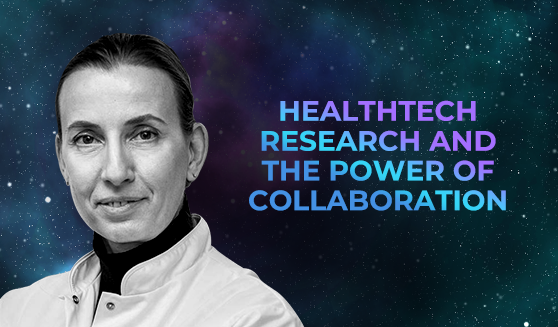
KAFD: A district designed for the future
Learn why King Abdullah Financial District (KAFD) is where capital, culture and connectivity converge in Riyadh – and join us for a LEAP Nights tour.


#LEAP23 is just around the corner. This week, we interviewed Marlies Schijven (Professor of Surgery at Amsterdam UMC; Chair on Digital Health, Project Leader eHealth Dutch Federation of Universities) to get a glimpse into her work before she steps onto the keynote stage in Riyadh.
Also the former Chief Medical Information Officer at the Ministry of Health, Netherlands, Schijven has a unique perspective on health technology and the challenges and possibilities in healthcare – with experience working directly with patients, with healthcare educators and students, with top researchers, and at a government level.
“A typical day… I’m afraid I don’t really have a typical day. One day I am supervising the surgical wards, or have the consultancy surgeon role in the hospital, the next day I’m seeing patients in our out clinic department, or I’m performing surgery in one of our operating rooms, or teaching the surgical residents or interns. And the day after that, I may be working with my PhD students, discussing collaborations with various partners, maybe giving a presentation or workshop on topics in the area of digital health. Or I’m doing my admin (always behind on that one).”
“Phew, there are so many gems to choose from. I am leading the newly built research program on Digital Health in the Amsterdam UMC, which takes quite a bit of dedication and effort. As a Principle Investigator, I am also leading the project on using a ‘Black Box’, a medical data recorder in the operating room, and I conduct scientific trials on multiple medical apps we have developed such as ERAS app, Stomakker, Stoma app and ReValidate!
“Also, I am leading the Dutch University Federation program on e-health, and I’m working on ethical AI…and much more.”
“It’s in the mix. I can’t really choose between my ‘research babies’ and other activities. Indeed, it is all about finding the right initiative in the right place and time frame, safeguarding the right conditions for implementation. And for that, I believe performing good research is really important.
“As an academic surgeon, I feel this area is really exciting, especially now with all the opportunity digital technology has to offer us. But to do it well, we must pinpoint where it might fit, and also understand and work with people knowing the ethical domain and the law. Because in order for digital tech to land, many conditions have to be met. Only then can we really and sustainably help our patients, support our healthcare providers and crosslink initiatives in our organisations.”
“By reaching out early. Do not develop something and be surprised that your believed ‘golden egg’ is no such thing, or not something we’ve been waiting for indeed! Collaborate early to better understand each other’s interests and needs. Find and embrace well-meant criticism, as that will help you much more – although it may be difficult – than random applause. And then move forward together!”
Thanks to Marlies Schijven. Learn more here and here – and join us at #LEAP23.

Learn why King Abdullah Financial District (KAFD) is where capital, culture and connectivity converge in Riyadh – and join us for a LEAP Nights tour.

How LEAP Nights gives you the opportunity to have deep conversations and build trust with the right people.

As LEAP approaches its fifth edition, this is a moment to recognise the people and partnerships that turned an idea into a platform – and to look ahead to what comes next.

Learn why King Abdullah Financial District (KAFD) is where capital, culture and connectivity converge in Riyadh – and join us for a LEAP Nights tour.

How LEAP Nights gives you the opportunity to have deep conversations and build trust with the right people.

As LEAP approaches its fifth edition, this is a moment to recognise the people and partnerships that turned an idea into a platform – and to look ahead to what comes next.